Rob Lilwall is an adventurer, author, and has made two television series for National Geographic. I owe a lot to Rob. I cycled my first ever 100-mile day with him. I learned to suffer on the road with Rob. My first ever bike trip – a 6 day loop round Scotland then down to Yorkshire – I found staggeringly hard and miserable (and wonderful). We’ve cycled a lot of miles together and camped in some absurd places. Rob is also at the thoughtful end of the adventurer spectrum. So I was looking forward to chatting to him for Grand Adventures.

Alastair: You’ve cycled and walked thousands of miles. Can you compare the two?
Rob: Well, my bike expeditions and my walking expeditions have been different in all sorts of senses besides the mode of transport. I’ve found all the walking trips I’mve done a lot harder physically, which is a huge, huge difference. Before I started walking expeditions, I had this very romantic idea in my mind of walking across valleys and mountains and it being a wonderful way to travel. But the reality of walking was really hard compared to cycling. On a bicycle you can cover far bigger distances, which means you can get to where you’re trying to get to in good time.
Alastair: The slowness and the pain… If someone is trying to decide between going on foot or by bike, what would you recommend?
Rob: I think walking can be really cool, but be less ambitious. If you get a bit behind schedule on a bicycle and so have to knock off a few big days, your body can deal with that. You get more tired, but it doesn’t “kill” you. Whereas walking, if you get a bit behind schedule and, say, have to walk 35 instead of 27 miles a day, that extra 8 miles a day really can start to destroy you. It’s very hard to catch up.
I’m not saying don’t do walking trips. I think you just have to be careful not to be too optimistic about how far you can travel. You need to allow a lot more margin for rest and to not have to catch up distances. And, if you get lost, it’s a major hassle on foot. So I think if you’re doing a first trip, a bicycle is a beautiful way to travel in every way.
I remember like our trip, do you remember our trip to Andalusia? We were just hiking with . . . I don’t even know what we had in our bags. Did we have a tent? Yeah, we had an old tent and a pot. And that was a brilliant trip. We were travelling light. We just flew to Málaga, hitchhiked to Ronda, and then walked south to the sea. How far did we do each day?
Alastair: It really wasn’t very far. But I still look back on that as being one of my favourite ever trips.
Rob: Exactly. So I think the best is a walking trip where it’s more of a ramble rather than a hardcore expedition to get from A to B and you’ve got to do 30 miles a day. Those sorts of walking expeditions are hard work, but a nice rambling walk where you’re just being a wild man, and camping out, and not carrying too much stuff… that kind of walk can be really cool as a first trip.

Alastair: I think a lot of people do their bicycle journeys more gently than you or I and they actually have fun unlike us! What do you think it is about – this is a bit of a grand word – but your “philosophy” of journeys? Yours is basically the same as mine because we started doing them together [in our first year at university], but this sort of philosophy of trying to live so absurdly cheap even when you don’t really need to, punishing yourself, trying to ride or walk a ridiculously long way, and generally trying to make life as miserable as possible. What is the point of all that?
Rob: [laughing] I think that’s slightly overstating what we do. It’s a great question, Al. I don’t know.
Alastair: Okay, tell me how it is, then. What’s your philosophy of bike or hiking expeditions compared to, for example, my friend Toby who cycled through Africa and whenever he found a pub, he’d stop for a beer. If he then had too many beers and got a bit tired, he’d just hitch-hike a lift to catch up with his friends. That’s a very different style of travel to yours…
Rob: I think I’ve had phases of travel like that (without the hitchhiking) – where everything was a lot more relaxed and fun. But I think part of the problem is sometimes setting an overly-ambitious goal, and then you end up having to really stretch yourself to the limit to actually achieve them.
I suppose there are two aspects to that. One is over-ambitious goals. Is that because we are being over-optimistic about thinking, “Oh, it would be quite easy to achieve this goal,” or is it because we are genuinely trying to set ourselves a goal which is going to be almost impossible to achieve? I think there’s probably a bit of a mixture of the two.
Also there was, certainly in my earlier days, probably a bit of over-optimism, what Leon and I ended up calling “hopevism” where it’s like, “I don’t know if we are going to be able to do it, but I hope we can.”
Alastair: Beyond optimism.
Rob: Beyond optimism is “hopevism,” yes. So I think there’s that part of it. I think I enjoy the challenge and stretching myself, but I think it’s good ideally for an expedition to balance a bit of both. Especially a long one where you have your riding through Siberia in winter, but then you also have your riding through China in spring. I think both together is what makes up for a cool expedition, because if it’s just a nice, gentle ride the whole time, I think I would find that a bit boring after a week or two. But if it was horrendous for the whole time, a bit like my China walk [when I walked 3000 miles from Mongolia to Hong Kong and it was mostly miserable], then you end up just thinking, “What the heck are we doing?”
Alastair: Was that horrendous walk worth it retrospectively? For the satisfaction and pride?
Rob: Yeah, I think so. We learned so much and we had a lot of good times as well. But I think we definitely bit off more than we could chew, and we had to be very determined to finish it. It would have been a lot more fun if we had allowed ourselves more time, planned it better, all sorts of things. But at the end of the day, it was a great experience. I’mm glad I did it. People often ask me about my two biggest trips, “What would you do differently?” The bicycle trip I’md hardly do anything differently. The walking trip I’md do a lot differently, so that’s quite telling really.
Alastair: What would you do differently then?
Rob: The commercialisation stuff aside [when we had all sorts of issues regarding trying to produce a film about the trip for television], I think the two obvious things we should have done differently is, one, allowing ourselves more time. I think if we’d had a year to do that expedition, it would have been pretty cool, but doing it in six months was pretty hard. And the other thing was just taking seriously the need to take time out to study Chinese. We could speak a bit, but it would have been a much more interesting trip if I had taken a three-month crash course in Chinese, rather than just trying to teach myself on the way. Those two things would have made a big difference.
Alastair: When I think back now to our first year at Uni, I remember I was planning to cycle around Italy that first summer. I wonder sometimes how differently things would have turned out for me if I’d done that. Cycling around Italy would have been a really fun, pleasant summer holiday. But then I ended up getting involved with you. And you were by then already significantly further down the line of masochism than I was. You’d already done a 100-mile bike ride, and slept out on a hill without a sleeping bag as a penance to yourself for kissing someone else’s girlfriend!
So then you signed me up for the Karakoram Highway and thus was born the era of trying to cycle a very long way in the most punishing way possible! What are your thoughts now of that Karakoram trip? You’ve done all these other things since, how do you reflect on that pivotal first trip?
Rob: It’s good memories. I think it was just funny! I remember that Quantitative Biology lecture when I wrote you a note saying, “Would you come on this Karakoram trip?” And I remember thinking, “This is a fateful moment.” It’s funny, isn’t it, when you get a sense essentially of a moment being a life changing moment?
Alastair: It totally changed my life.
Rob: I suppose that got you into masochistic trips. And then because of you getting into it, you recruited me to do the Cycling Home from Siberia [when I joined you along the way on your ride round the world], so it’s worked both ways.
Alastair: I remember that first year at university so fondly. We’d do these crazy runs, racing until we were sick and keeping on running. I remember coming to pick you up for a run at about 6 in the morning you’d slept in and I wrote you a note saying, “Sort your life out Waster!” I remember that so clearly. We were pushing ourselves quite hard at that young age.
Rob: I loved those races! I remember you throwing up and running as you threw up…
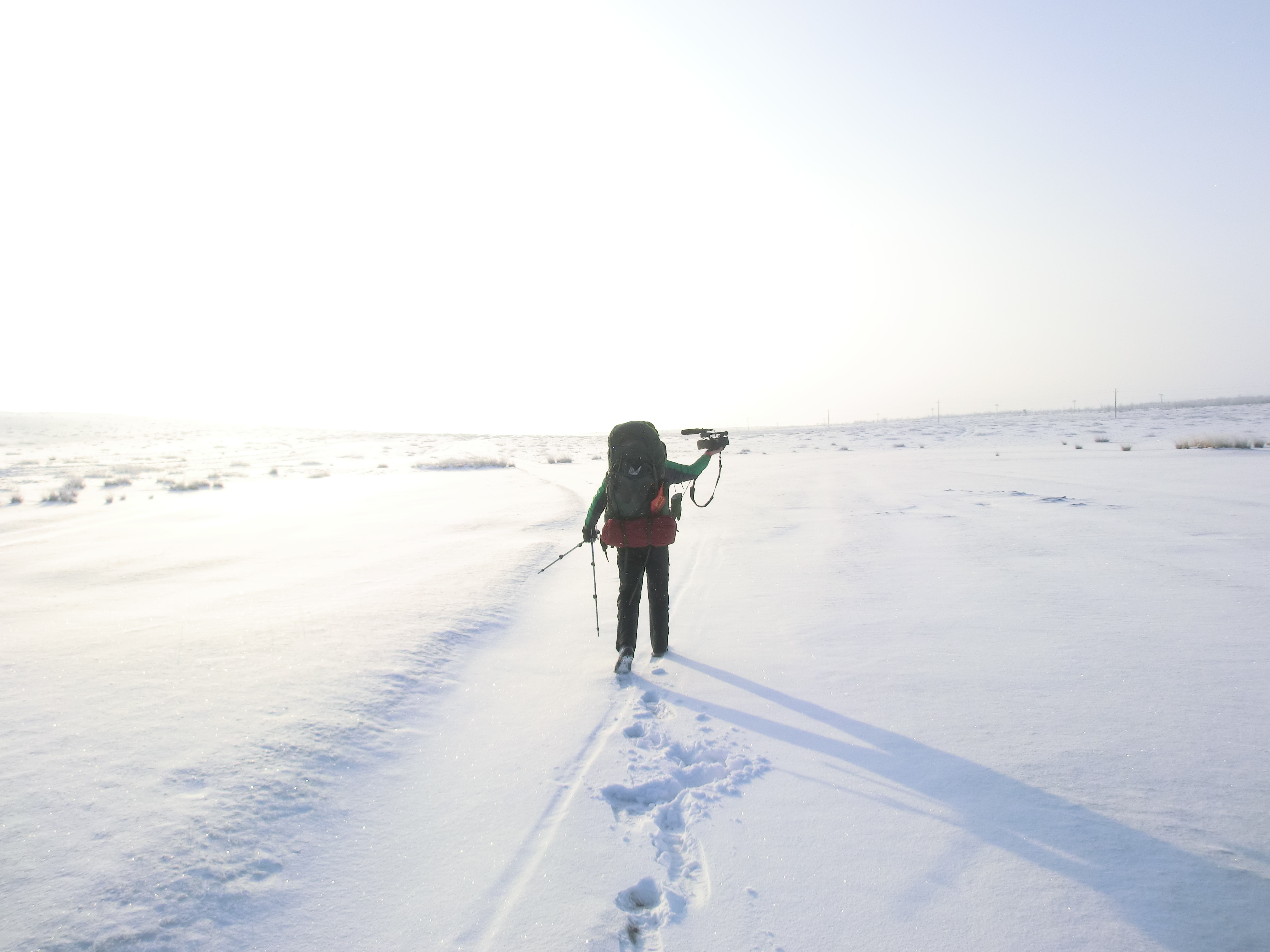
Alastair: My original question was comparing the naivety of the first trip, the Karakoram Highway, to subsequent things we’ve done, because I think it’s hard to advise people on their first adventure when you’ve done loads of adventures. You take a lot for granted.
Rob: Yeah, it’s so magical, isn’t it? Your first trip. Especially your first trip outside your home continent. I think it is a really magical trip, and you never get that again in some ways. So my memories are very positive of that trip. The Karakoram Highway is hard to beat anyway for a bicycle ride, and I think we ended up doing it twice as fast as we thought we would. I guess even then our masochistic streak was pushing us too hard!
Alastair: Yes, I look back on that trip and I just think of laughing a lot, enjoying it a lot, not taking many pictures or writing much or thinking, “How this is going to make any sort of legacy when I come home?”
Rob: We were pretty nervous about it, but reasonably well prepared. It was very different. Do you remember we met those other cyclists and just sat listening to them, wide-eyed and wide-eared?
Alastair: They had amazing stories.
Rob: Yeah, there was an Irish guy who cycled across Iran, all the way from Ireland to Pakistan, and it was just like, “Wow.” It was just like opening a whole new level of ideas to us.
Alastair: I remember after that trip, coming home, and just being obsessed immediately with planning next year’s adventures. The bug truly bit me then.
Rob: Ha! The masochism of why we cancelled our return ticket and bought a ticket to Istanbul instead. I never worked out why we cancelled our return ticket!
Alastair: That was a properly masochistic trip, trying to cycle from Istanbul to London in 20 days on £5 a day between us. I really suffered on that. That was really, really hard.
Moving on now to our grizzled old age as “professional adventurers”… Why have you decided to try make this your job? Why didn’t you just stay as a teacher and going off for two months each summer, doing a cool trip?
Rob: I think I’mm still processing this one really. I’mm not quite sure what I think in some ways. But I think I’mm really glad that the whole professionalisation, at least in its important early stages, happened by accident, not by ambition. Even “Cycling Home from Siberia” was definitely not a professional trip. I was in two minds even over keeping a blog about it, and then started giving some talks because it paid for the trip as I went along. Even writing a book was very far beyond my serious thoughts. I don’t think I would have had the guts or inclination to write a book if I hadn’t been approached by a publisher when I got back. I suppose deep down, secretly, I might have wanted to, but I’mm sure I wouldn’t have written one without a book deal. But then I got the book deal and I had this lucky break through National Geographic buying my video footage, which I’md just been filming for fun really, not with any serious thought that it would ever become a TV show.
So it all happened by accident when I actually was applying for teaching jobs. The two jobs I applied for I didn’t get, and then I got a book deal. So that changed my path. I gave a lot of talks, and I suppose somewhere in that, when the book did quite well and got decent reviews, that was another push to start thinking, “Maybe I should keep going with this in more of a professional sense.”
And then that led to the second really big trip which I totally went to town with trying to commercialise, with all sorts of mistakes and learning points on the way.
It’s so hard not to say ‘yes’ when there’s opportunities to get free stuff and a magazine asks you to write or whatever. It’s hard not to just say yes to everything you possibly can. We ended up saying yes to loads of different sponsors. We did want the TV involved, so we worked really hard to get them involved, but we then ended up having them involved on terms which weren’t very easy for us to fulfill. And then I had I had a book deal, and I was writing things. So I ended up with tons and tons of that stuff alongside trying to pull off quite a hard walking expedition, and it was all quite a difficult experience. It was a brilliant trip in the end, but I think we got the balance wrong.
Alastair: From talking to both you and Leon about your walking across China trip, it seems to me that when you are old and looking back on your life, you won’t chuckle away about that experience in the way that we’ve been chuckling about Pakistan just now. When you make adventure your job, it inevitably starts to become “a job” and some of the magic possibly goes. Is that fair? Do you regret that or is it still a good job to have?
Rob: It’s a great question. I think it’s a balance, isn’t it? Because when you’re in your 30s, like we are now, if you want to go on longer trips you need to be able to pay the bills. [My wife] Christine and I are planning a tandem trip across America next year, and, with all the stuff that happened on the walking trip, we’ve really been careful not to commercialise it. I don’t even want a book deal. We might get a couple of sponsors for some key gear, but I think what I’mm trying to say is that I think we need to be really careful about if you want to have a good trip, being careful not to get too caught up.
There’s two sides to it. One is the commercialisation side of it, the other side is it can become so showy, and so posturing, and so, “Look at me.”
I’m really getting quite averse to it. I think, if we’re honest, it really changes the experience when at the back of your mind you know you’re going to be showing or telling people about it. It does for me anyway.
Alastair: I agree with that, too.
Rob: And I think we need to take that more seriously, because it’s easy to think, “I’mll just take a few pictures,” but then I think it actually changes the mindset of the whole thing. If it is your job and you’re earning money, fine, but if you’re wanting the trip as the main thing you want to do, I’d say a book deal and a TV deal are probably bad things to have.
Alastair: When people say to me, “Oh, being an adventurer, that must be the dream job,” (and I absolutely love it) I often describe it to them as “showing off about myself on the Internet”. There’s quite a large amount of truth in that, which definitely takes away from the simplicity of enjoying a journey for your own personal reasons.
Rob: It’s a luxury to have this option, but when one can go on a trip because one wants to go on a trip, without even really concentrating on making a story out of it, you just live it very authentically. And then if you’ve got a story to tell afterwards, you tell it. And that would be a good story because the best stories are the ones you’ve lived authentically.
Alastair: I think you’ve summed that up really well.
There’s quite a few professional adventurers around these days, and I’mm asking you this because you live in Hong Kong, so you’re removed from a lot of those people, and also you’re not that interested in the Internet, so you probably pay less attention than I do to what the other people are up to. But do you find yourself measuring your achievements against other adventurers or not? And if so, do you find it useful or unhelpful?
Rob: I think I have sometimes, but I think a little more latey, but not with the early stuff. That was the beauty of. But I don’t think it’s really been a big issue for me.
Alastair: One of the reasons I was asking that is because I’mve always really enjoyed seeing other people’s expeditions and I don’t feel very competitive on that. And then writing books, I feel it’s quite hard to be directly competitive, so I just like it when other adventurers do books.
It’s only since I’mve started entering my film into film festivals where somebody “wins” the festival as being the “best” film that I found myself being competitive against other films, and not always in a particularly nice way. Sometimes I see a film that wins and I think, “Mine is better than yours.” That’s not nice! It’s interesting how the film has brought out my competitive side of things, which is something I’mve never really noticed in adventuring before.
Rob: Yeah, it’s a different dynamic.
Alastair: I can use it in two ways. The good way is to see a film that beats mine, and to make that inspired to learn from it, and make my next film better. The negative side of it is to start feeling ill-will towards someone who’s a very nice guy, probably very similar to me, who is doing a very cool trip, and has made a film I’md love to have done. I think trying to see all of these people as inspiration rather than competitors is probably the wise thing to do…
Would you rather write a great adventure book or make a great adventure film?
Rob: Oh, man, that is a good one. I would probably go for the film, because of my two books and two TV shows, I’md say neither of the TV shows have really done justice to the trips. Although they’re good fun, they’re not really a beautiful rendering of the journey. Whereas the books, especially my first book – I quite liked my first book – I think do render it reasonably well, so it would be nice to get a good film version of it all.

Alastair: What books should someone who is dreaming of their first big adventure go and read?
Rob: Ranulph Fiennes’ autobiography is brilliant for a life of pure adventure; for a death-wish trip which he somehow pulls off, Rory Stewart’s The Places In Between; for following a historical route Dalrymple’s From the Holy Mountain; being aware that things might gone horribly wrong Krakauer’s Into the Wild; rite of passage adventures – your cycling books!
Alastair: If I gave you £1,000 to go on any adventure you wanted, what would you go and do?
Rob: I would do a tandem ride with Christine, which is, as I mentioned, in fact a trip we’re doing for four months together next year. I don’t know how far the £1,000 would get us, because traveling with my wife . . .
Alastair: Is she expensive?!
Rob: She’s not super expensive, but she’s super expensive compared to me and you, because I’ve promised Christine we’ll spend a couple of nights a week in a hotel with a hot shower! So if we only had £1000 we’d ride as far as we could in America, but I don’t think we’d get all the way across.
Alastair: And I guess if the airfare mattered in the budget, you could just ride as far as possible from your front door on a tandem with Christine.
Rob: I think more adventurers who get married need to try a tandem out with their wives. Christine really likes it.
Alastair: Thanks, Rob.
Rob’s Website is here, and you can buy both his books and his films online too.
My new book, Grand Adventures, is out now.
It’s designed to help you dream big, plan quick, then go explore.
The book contains interviews and expertise from around 100 adventurers, plus masses of great photos to get you excited.I would be extremely grateful if you bought a copy here today!
I would also be really thankful if you could share this link on social media with all your friends – http://goo.gl/rIyPHA. It honestly would help me far more than you realise.
Thank you so much!
Grand Adventures from Alastair Humphreys on Vimeo.
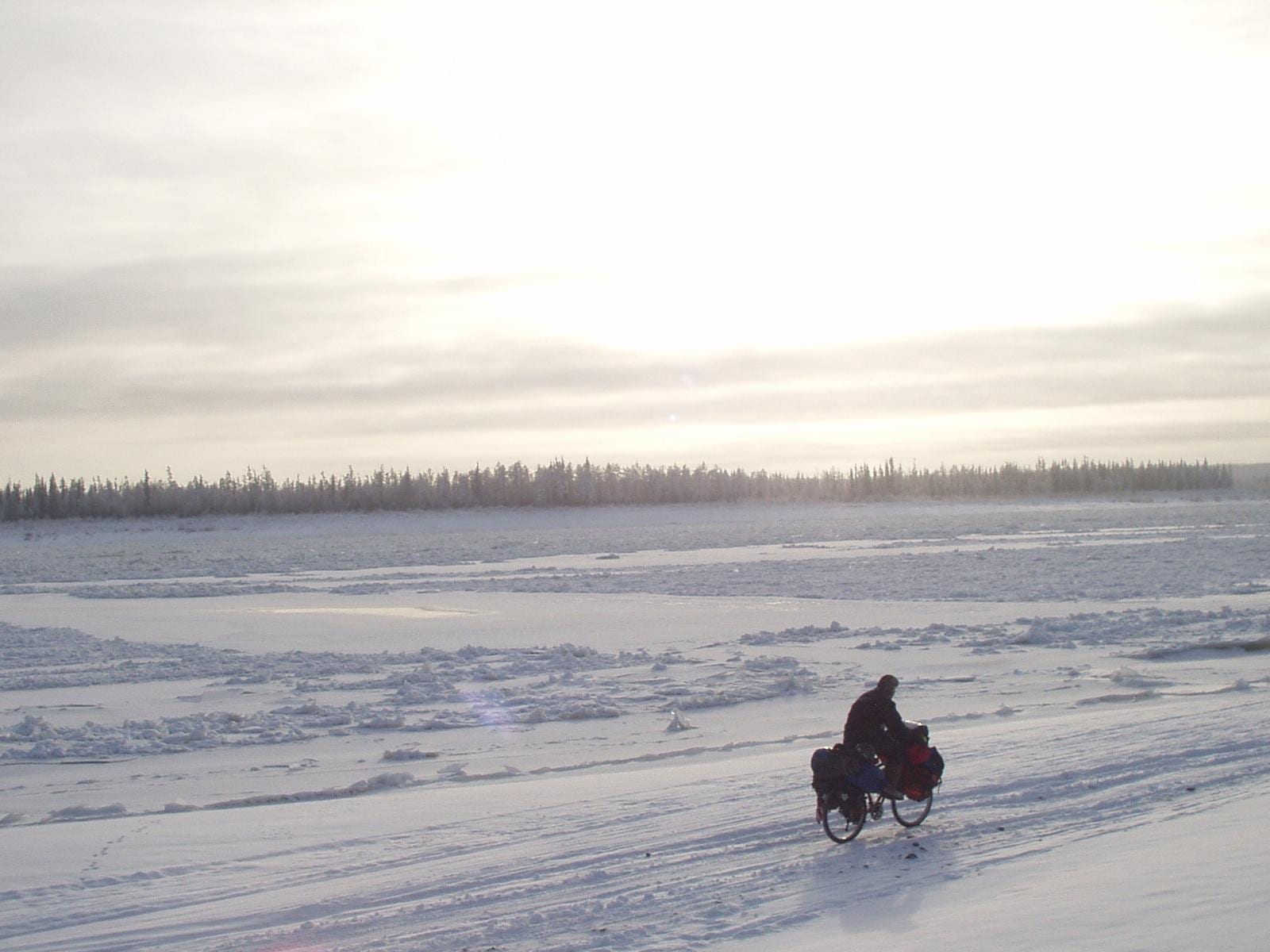
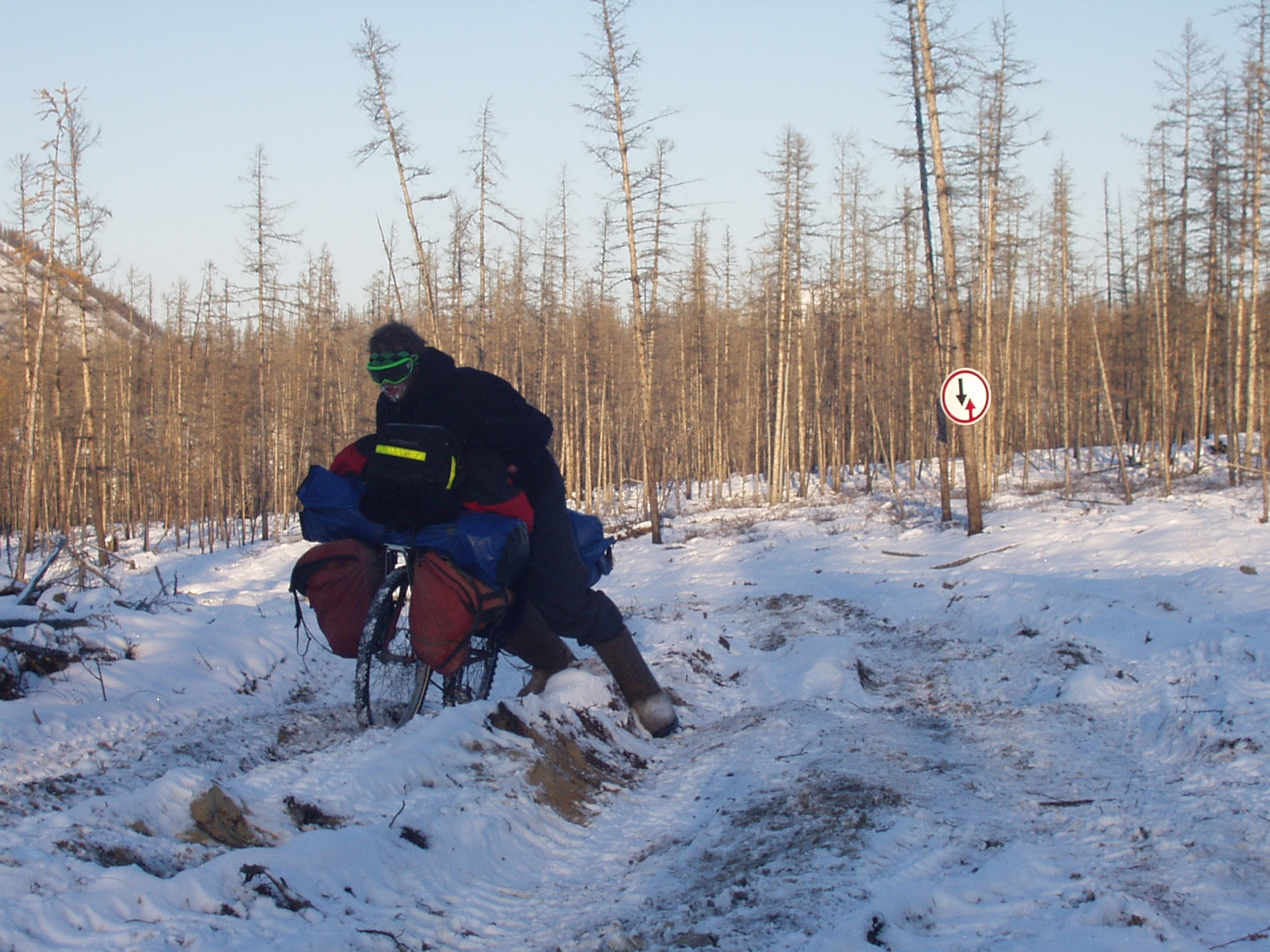
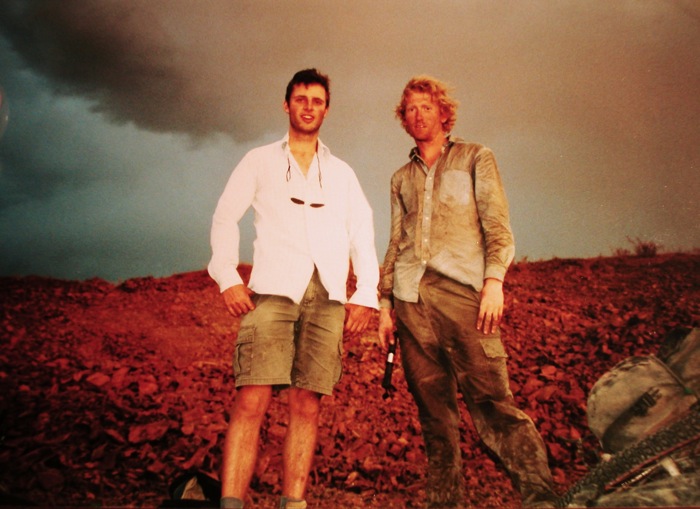

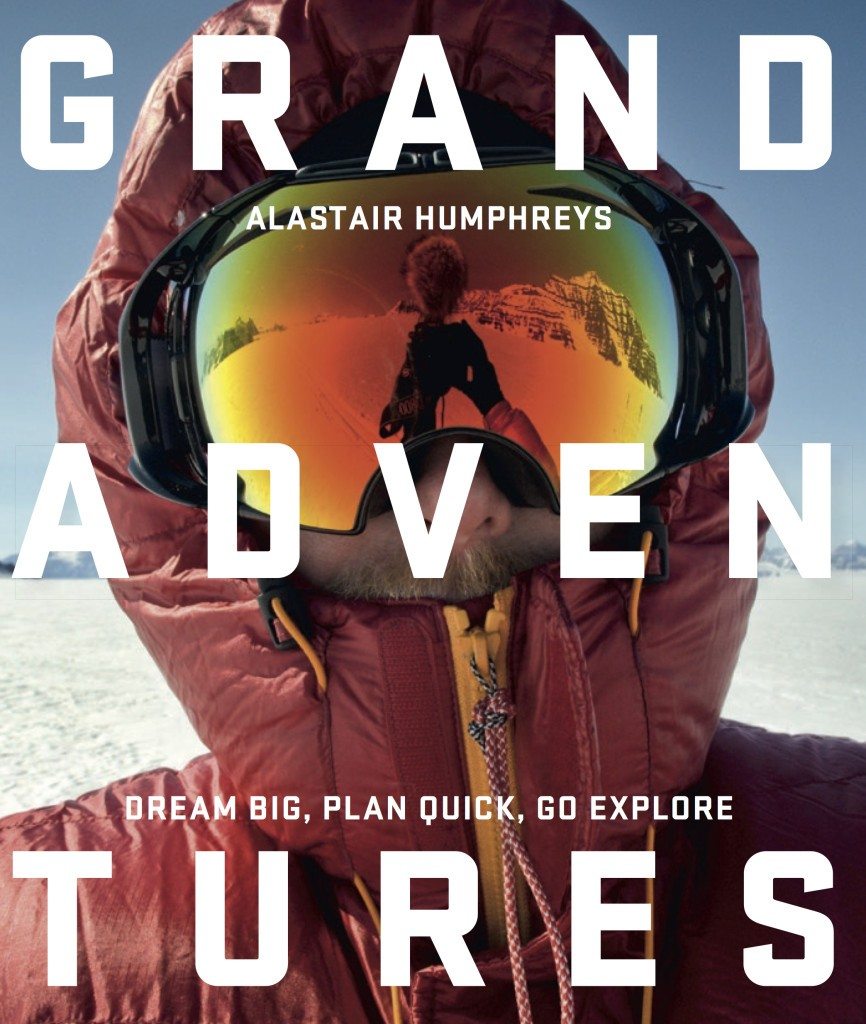
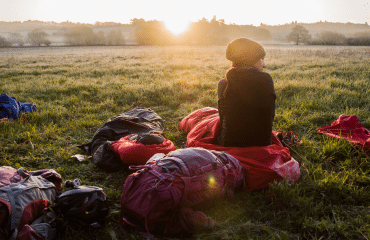

I would buy the book of your adventure on the Karakoram highway. Thanks for letting me and your other readers sit in on your old friends ramble with Rob. Happy new year to all.